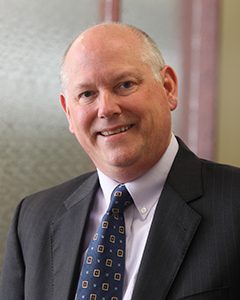The Valuable Lesson We Can Learn From Retirees

Among retired U.S. adults, when asked to complete the sentence, “When I look back on what I might have done differently with my retirement savings, I should have…” the vast majority of retirees echo the pleas of the retirement industry: Save early and often.
Nearly two-in-five (39%) say they should have started saving earlier in their working life and 35% say they should have saved more. 29% say they should have paid more attention to preparing for retirement when they were younger.[1] Most suggested doing this by getting involved as soon as possible in any retirement savings vehicle offered by their employer – especially a 401(k), if available – and to contribute enough to take full advantage of employer matching contributions.
They also universally advocated the truism that it’s never too early – or too late – to start saving for retirement. As it turns out, there are key concurrent themes among all retirees. From saving more, and starting earlier to paying more attention to investments, our recent study, Beyond the SmartPathTM, offers fundamental and indispensable advice from retirees on what they might have done differently as they looked back to their working years.
The consistent messages: save more, start saving earlier, and invest in a more educated manner. Simple, consistent advice, yes, but people are not following it. What can we take from this and how can plan sponsors help today’s employees?
Plan sponsor decisions matter
Defined contribution plans—and 401(k) plans in particular—have undergone a dramatic shift since their creation nearly 30 years ago—evolving from what was once considered a supplementary retirement benefit to become the primary source of retirement income for many people today. Plan sponsors have a growing sense of responsibility for employees’ overall financial wellness. Plan design decisions are the key driver in helping people save successfully.
Retirement readiness starts with progressive plan design
Ensuring successful participant outcomes begins with progressive plan design that maximizes positive participant behaviors. Certain automatic plan features that better meet the needs of plan participants and plan sponsors can drive successful outcomes for participants and sponsors alike. These features help plan participants set a
reasonable level of salary savings, increase their contributions over time, achieve proper investment diversification and make better use of a plan’s investment alternatives.
Educate me
Beyond plan design, there is nothing more effective when it comes to influencing participant behavior than on-site education. Periodic re-enrollment and education meetings help participants map out a strategy and align that strategy with their long-term goals. Participants often cannot measure whether they are on track to
meet their retirement planning goals without first taking the steps to determine what the goals are. Rethink communication and education programs to help participants think in terms of affordability. Focus on financial wellness and overall budgets and make small lifestyle changes to make saving more affordable and realistic. Use your education meeting as a platform for integrating financial planning tools to help participants do this—in particular, tools that provide guidance and advice.
In 2016 we launched the hashtag #talkaboutretirement to help spur dialogue about retirement readiness among family members, colleagues and friends, in addition to industry professionals. With people arguably more aware now than ever before about the need to prudently save for retirement, it is our hope that #talkaboutretirement will encourage them to redouble their efforts at taking such simple advice more seriously and will serve as a springboard to people taking action.
[1] “Beyond the SmartPathTM, Pentegra Retirement Services, 2016
About the Author
